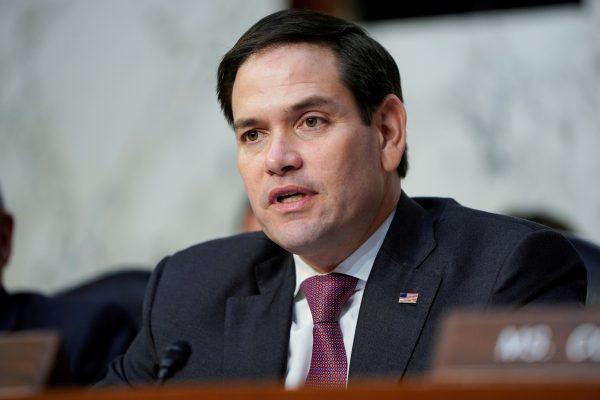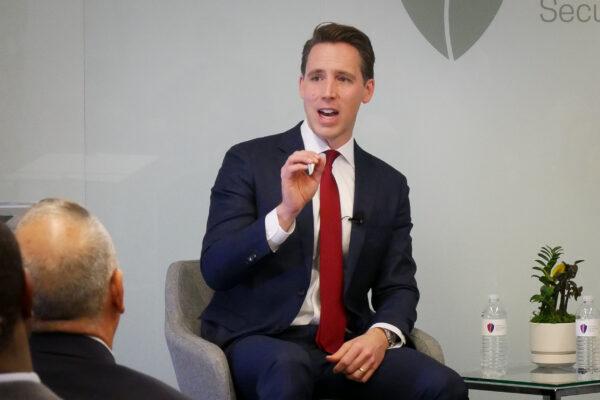U.S. senators are using the “hotline” method to push for swift passage of a bill supporting the pro-democracy protests in Hong Kong, as tensions in the city escalated to new levels in the past week.
The Hong Kong Human Rights and Democracy Act will require the U.S. administration to conduct annual reviews to ensure the city is sufficiently autonomous from mainland China to justify special trade privileges afforded to it by the United States.
The United States currently treats Hong Kong as a separate entity from the mainland in economic and trade matters, even after the former British colony was handed back to Chinese rule in 1997, after the signing of the 1984 Sino–British Joint Declaration.
The proposal would also impose sanctions on any officials accountable for human rights violations in the city. A companion version of the bill in the House passed unanimously in October.
The hotline process, initiated by Sens. Marco Rubio (R-Fla.) and Jim Risch (R-Idaho), will bypass the regular roll-call voting procedure. The process requires leaders of both parties to come to an agreement. Each senator would then be informed and provided a specified amount of time to object to the bill. If no objection is raised, the bill is considered passed.
Hong Kong Democracy Council, a Washington-based advocacy group established to support the protest movement, said on Twitter that as of Nov. 14, there hasn’t been any objections to the bill.
Rubio’s office told The Epoch Times that they are hopeful the bill can be passed next week, adding that so far, no objection has been heard from the Republican side.

McConnell said on Twitter that he had a “productive” conversation with Rubio the day before about the bill, adding that “Senate needs to stand with Hong Kong and I hope we can take action soon.”
“The world needs to see that the United States will stand up and tell the Chinese Communist Party that what they are doing to the people of Hong Kong is wrong,” Risch said in the press release.
Rubio also expressed regret over the loss of “young Hong Kong lives.”
Police also charged onto Hong Kong campuses and into a church to make arrests this week, marking the first time they have entered such premises. More than 1,500 canisters of tear gas were fired on Nov. 12 alone, most of which were concentrated at the Chinese University of Hong Kong.
Hong Kong reverted to Chinese rule with the expressed guarantee of a high degree of political freedom not enjoyed in the mainland. U.S. and UK officials have urged Beijing to honor its promises in light of the intensifying crisis in Hong Kong.
“After more than two decades of broken promises, it is time to hold the Chinese Communist Party accountable for its erosion of Hong Kong’s autonomy,” Risch said.

Sen. Josh Hawley (R-Mo.), a bill co-sponsor, also took to Twitter on Nov. 14 to relay news about the effort. He expressed optimism that the “[p]assage should be imminent.”





